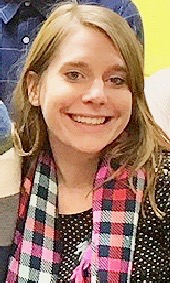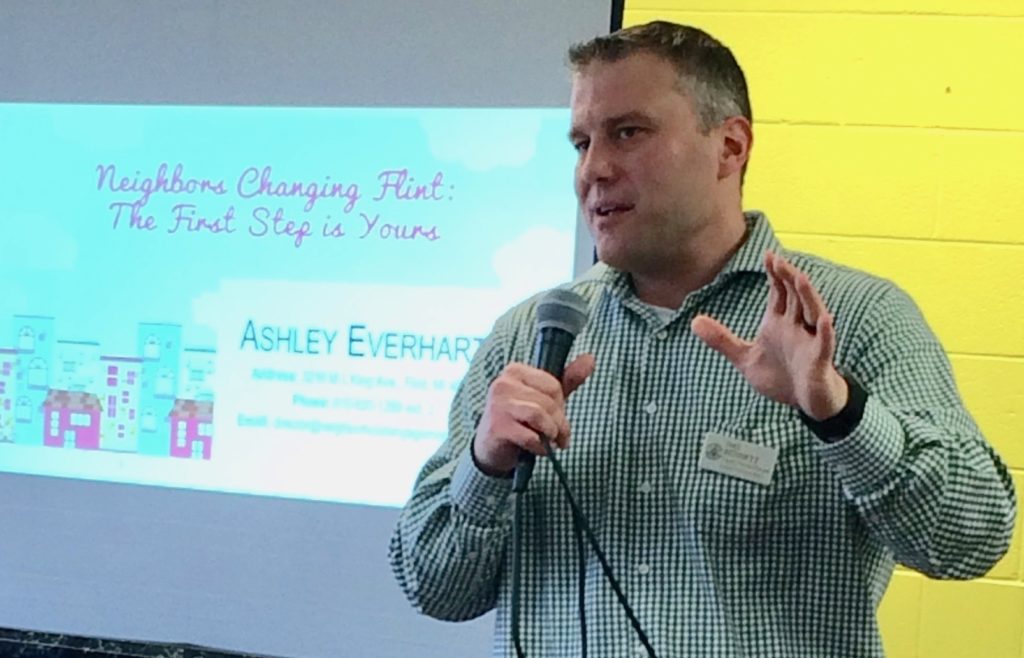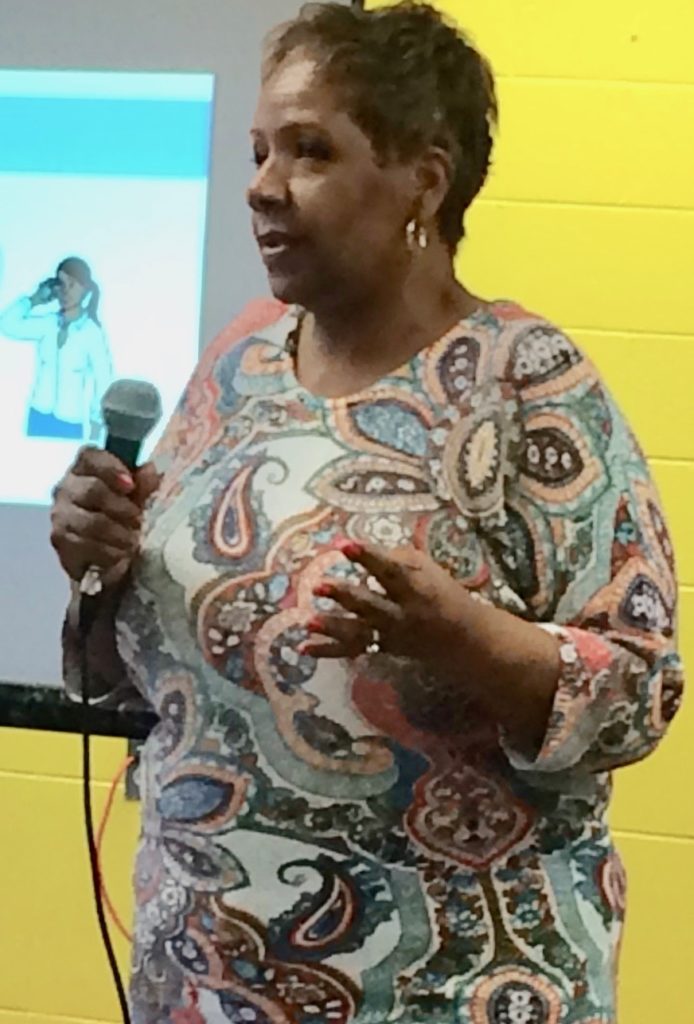By Jan Worth-Nelson
After sessions in February and March on leadership, funding strategies, blight, reuse of vacant lots, and promoting health through environmental design, the “Neighbors Changing Flint” series concluded March 27 with a focus on advocacy, campaign development and long-term change.
About 40 residents, many of whom had attended all six of the sessions, assembled one last time at the Sylvester Broome Empowerment Village and celebrated the series with cake, pasta and pizza.
 Ashley Everhart, director of the sponsoring Neighborhood Engagement Hub, said she was grateful and honored by the response to the series, which consistently drew 30 to 50 participants representing at least 15 neighborhood groups.
Ashley Everhart, director of the sponsoring Neighborhood Engagement Hub, said she was grateful and honored by the response to the series, which consistently drew 30 to 50 participants representing at least 15 neighborhood groups.
“I’m grateful for all the work they do,” she said. “And now, our challenge is we start implementing, we start going after grant funding, especially.”
The workshop on funding drew the largest attendance, Everhart noted, which she said is not surprising since the groups involved are uniformly nonprofit and volunteer-driven.
“Ultimately, the hope for this series is that it gets people connected to resources and how to connect with information toward projects they want–we are planting seeds.”

Ashley Everhart (Photo by Patsy Isenberg)
Everhart, a Detroit native who has a Michigan State University degree in communications, specialized in environmental studies, focusing on behavior change as it relates to sustainability in the environment. After living and working in Detroit, Grand Rapids and Lansing, she said, “My heart landed in Flint.”
And she’s optimistic about Flint’s prospects, especially as propelled from the neighborhoods.
“Nobody has the same grassroots level of commitment that I have seen in Flint,” she said.
“At the Neighborhood Engagement Hub, we believe that neighborhoods are critical to the revitalization of Flint. Without that resurgence of neighborhoods, all else will crumble over time,” Everhart said. “We’re excited about all the revitalization of downtown, but if you don’t have a tax base to support a downtown, you can’t really sustain it.
“So we need to make sure we invest in the neighborhoods, not only for the people who stay, but also to create opportunities for new people to move in and create a sense of place to revitalize the community long term,” she said.
“I see so much energy, so much work being done — it’s really exciting at the neighborhood level. It’s growing, more groups are forming, more people getting involved. The challenge is to remember there are opportunities for burnout.
“We need to make sure to take care of each other, take care of the leaders in our communities by lifting up together and providing them support,” she said.
One highlight of the discussion, pointing toward the work ahead from neighborhood activists, was communicating with elected officials.

Jake Bennett (Photo by Jan Worth-Nelson)
Jake Bennett, deputy district director for U.S. Congressman Dan Kildee, urged residents to actively engage with their elected officials, adding, “never be afraid to talk to a staffer” like himself, since Kildee himself is in Washington three out of four weeks of the month. His local staff can help put forward funding requests and input on legislative issues in between the Congressman’s weeks in Michigan.
Bennett emphasized that “not acting” can be a form of acting and can have a negative effect. He pointed out that in the 2016 presidential election, Donald Trump won by only 10,000 votes, but that 70,000 voters in the state actually “undervoted” by leaving the choice of president blank.
“Those people made a choice,” he said. “They had an effect.”

Renell Weathers (Photo by Jan Worth-Nelson)
He also pounded home the importance of the 2020 census, reminding participants that Michigan actually lost a seat in the last census due to population decline.
“We need to count every person there is,” he said.
Other presenters included Sarah Scheitler from the Flint River Watershed Coalition, presenting on “Advocacy 101,” Kristin Stevenson, from the City of Flint Planning and Zoning Division, presenting on “Campaign Development,” and Renell Weathers, community engagement director from the Michigan League for Public Policy, furthering the conversation on “Communicating with Elected Officials.”
EVM Editor Jan Worth-Nelson can be reached at janworth1118@gmail.com.



You must be logged in to post a comment.